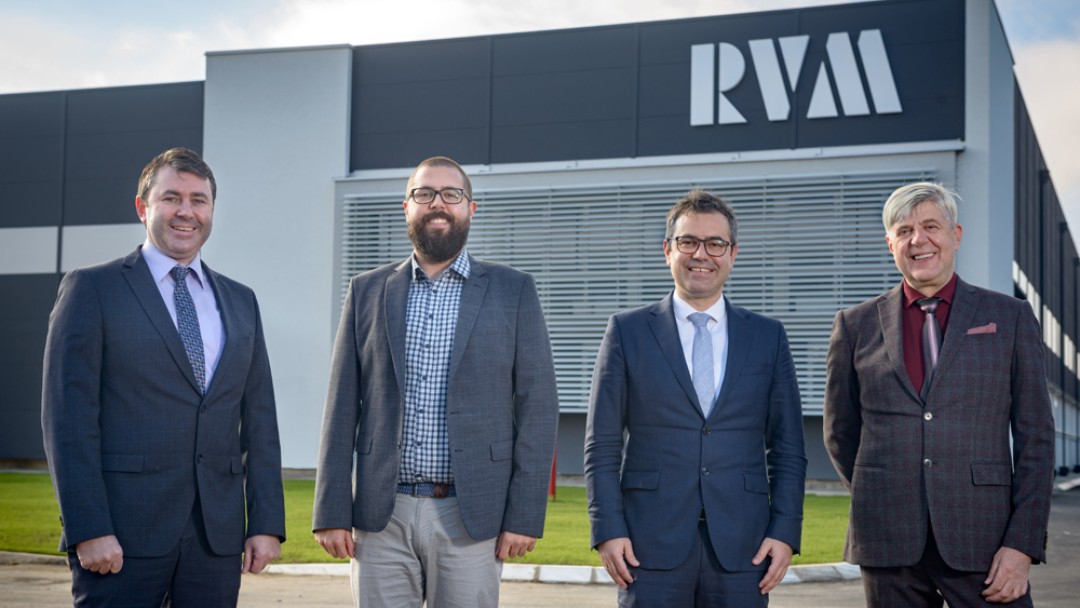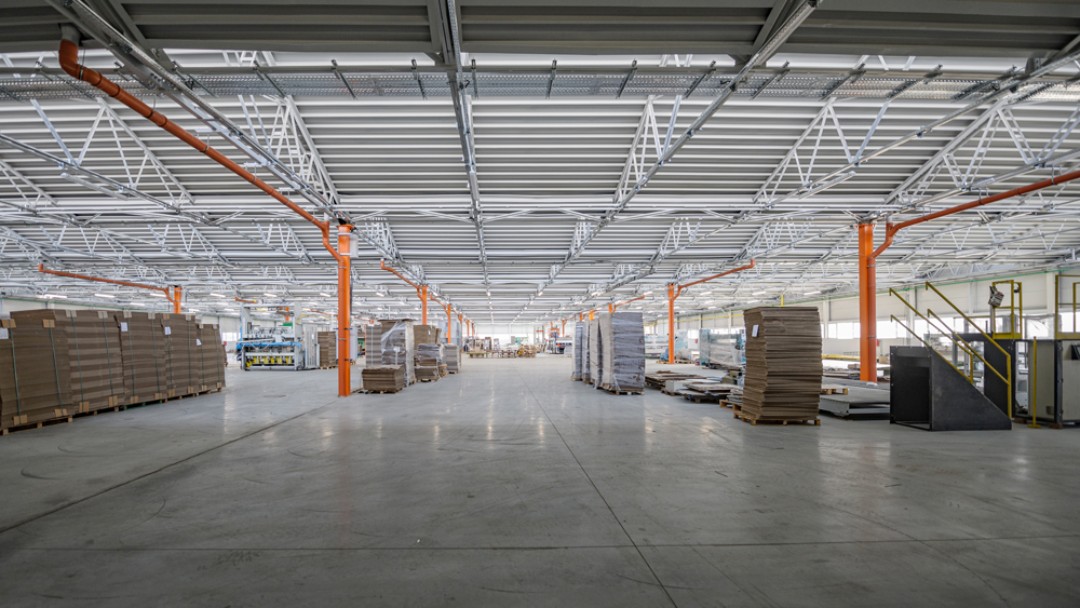News from 2021-03-30 / KfW Development Bank
Serbia: New building for packaging factory saves energy

On behalf of the German Federal Government and the EU, KfW supports entrepreneurs in the Balkan countries with loans for energy-efficient refurbishment. These investments are additionally supported by the EU's REEP Plus programme, in which KfW is participating with EUR 50 million. With its help, the Serbian packaging manufacturer RVM in Kraljevo has rehabilitated a hall for its production, with a focus on energy efficiency.
RVM in Kraljevo produces cardboard packaging, for example in the form of outer packaging for the beverage industry. Previously, production was spread over three buildings, so material and products had to be transported back and forth between the different units with forklift trucks. In addition, the old halls were in poor condition. In 2019, RVM therefore acquired a new building with 10,000 square metres of space, which, however, was also in need of renovation. When their house bank, Unicredit Bank, presented the REEP Plus programme to the management, RVM recognised their opportunity. They applied for and received a loan to renovate the newly acquired production building. The loan amounts to EUR 250,000, plus an EU grant of EUR 25,000 from the REEP pot. The company itself raised EUR 90,000 from its own funds.
"With the help of the REEP Plus programme, we were able to implement the highest standards of energy efficiency," explains CFO Vladimir Radosavljevic. "We will use the REEP grant to reduce the loan burden." New windows were installed, heat-insulating doors, the entire electrical installation was renewed and replaced with LED lamps as light sources. A dust extraction system was also installed, which significantly improves the air quality in the new hall. "Thanks to the funds from the loan and the grant, we did not have to compromise on building materials or energy efficiency," the manager emphasises. The subsidy thus enabled the company to make an investment that it would not have been able to make on its own. Nevertheless, it raised a quarter of the costs from its own funds.

In addition to the savings from the energy-efficient construction, there are fewer transport routes for raw materials, semi-finished products and goods, because all production steps are now united in the new building. Trucks and forklifts cover much shorter distances. In addition, there is still room for expansion of production. This will enable RVM to set up new production lines in the future. "Not only has fuel consumption been reduced, but occupational safety has also increased," emphasises Vladimir Radosavljevic. The risk of injuries is lower in the new hall with the optimised workflow than before. The CFO estimates the energy savings from the new hall at around 40 %.
"Companies like RVM in Serbia not only save energy with our help, but also significantly reduce their greenhouse gas emissions," says KfW Department Director Bianca Clausen. "And Serbian banks can build up important know-how through the programme, which contributes to strengthening the financial sector."
The loans from UniCredit Bank Serbia are financed by KfW on behalf of the German Federal Government. Additional funding comes from the EU through the Regional Energy Efficiency Programme (REEP), in which KfW is participating with EUR 50 million. The EU programme REEP Plus, which is under the umbrella of the Western Balkan Investment Framework (WBIF), is implemented by the European Bank for Reconstruction and Development (EBRD), the Energy Community Secretariat (EnCS), bilateral donors and KfW. It comprises four components; in addition to the promotion of political exchange and interim financing, these are loans for the private sector and public administration. KfW is active in the latter two areas. So far, 597 projects have been promoted under REEP with a wide range of projects being financed, from the energy-efficient refurbishment of outdated production facilities to the purchase of modern tractors or combine harvesters in agriculture to the installation of energy-optimised heating systems in public buildings. As a result, energy in the amount of 51,000 MWh per year could be saved and greenhouse gas emissions of 15,000 tonnes per year were avoided.

Share page
To share the content of this page with your network, click on one of the icons below.
Note on data protection: When you share content, your personal data is transferred to the selected network.
Data protection
Alternatively, you can also copy the short link: https://www.kfw-entwicklungsbank.de/s/enzBWrMC.CdKA
Copy link Link copied